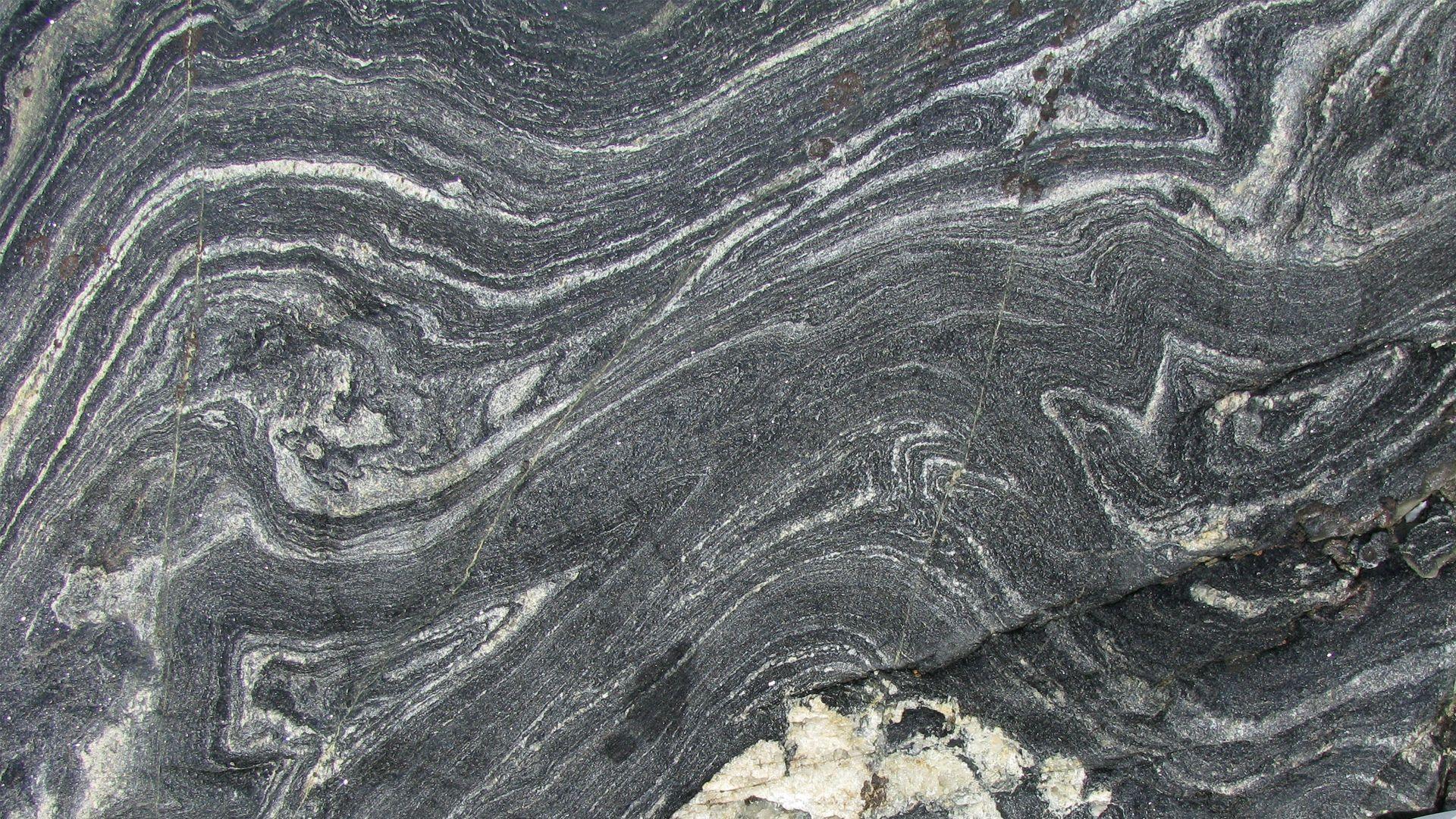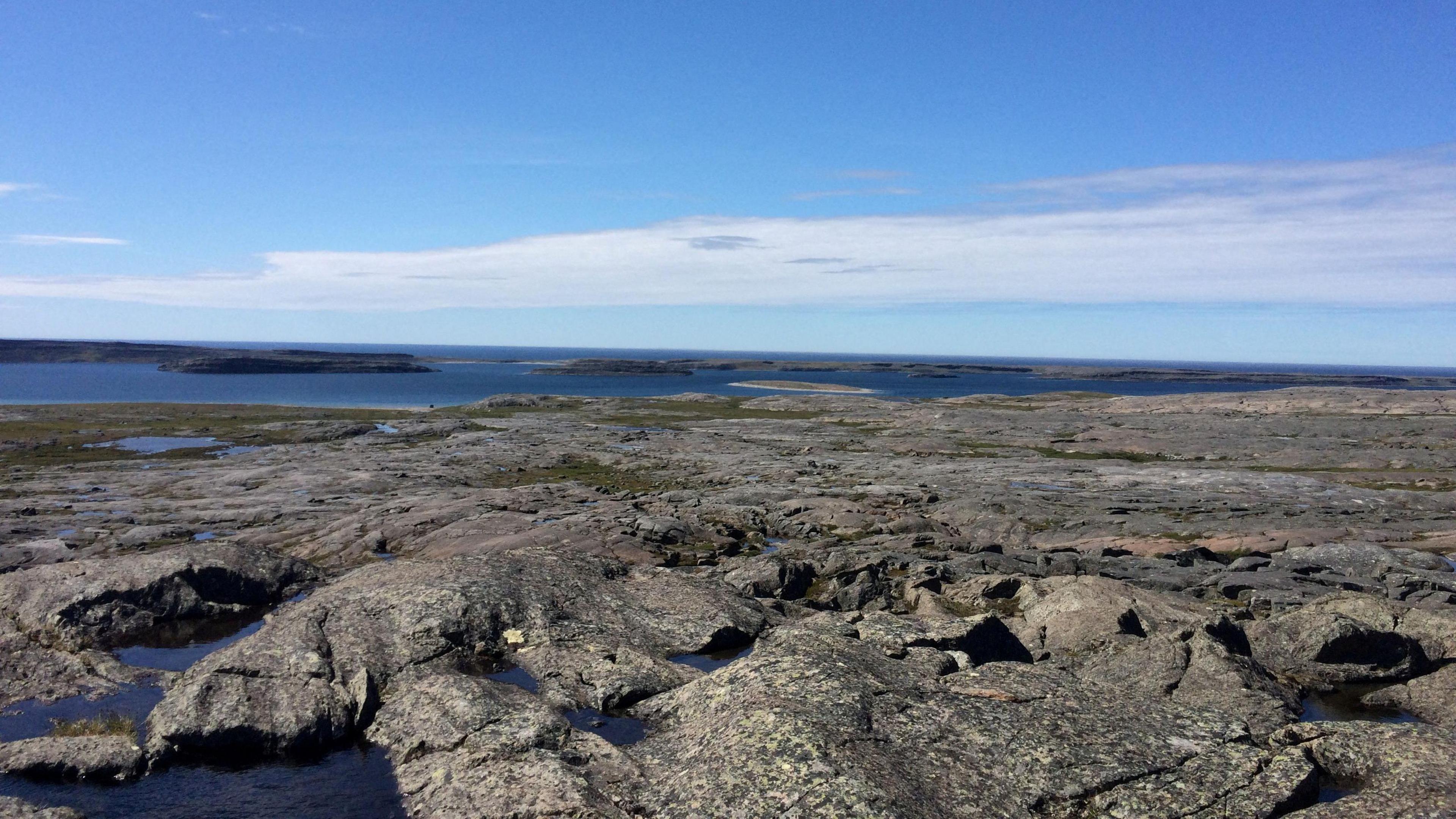Are these the oldest rocks in the world?

These rocks are older than the dinosaurs and could tell us more about what the Earth was like after it was formed
- Published
Scientists think they have found the oldest rocks on Earth.
The ancient rocks were found in the Nuvvuagittuq Greenstone Belt, in Quebec in Canada, and for the last two decades scientists have been studying them.
But they hadn't been able to agree on an accurate age for the rocks, until recently.
Previously teams using two different dating methods had produced different ages for the rocks: 4.3 billion and 3.8 billion years old.
But the latest study says the rocks are actually 4.16 billion years old.
- Published8 August 2024
- Published6 August 2019
- Published2 January 2024

Could the Nuvvuagittuq greenstone belt host some of Earth's oldest rocks?
How did scientists test the old rocks?
The scientists used both the techniques from previous tests, but focussed in on just one type of rock that made up the stripy stones.
This type of stone is called metagabbro and is a rock that formed under huge heat and pressure inside the planet's crust billions of years ago.
Both tests brought back the same result this time - the rock was 4.16 billion years old.
The rocks are from one of the earliest periods on Earth, known as the Hadeon eon.
The Earth was formed around 4.5 billion years ago and rocks from this time are an incredibly rare, as the movement of the Earth's tectonic plates mean that many have been melted and recycled.
Jonathan O'Neil, who led the study in the Science journal said the rocks give a "unique window into our planet's earliest time to better understand how the first crust formed on Earth".
He added that because some were formed through ancient seawater, they shed light on the first oceans and "help established the environment where life could have begun on Earth."
